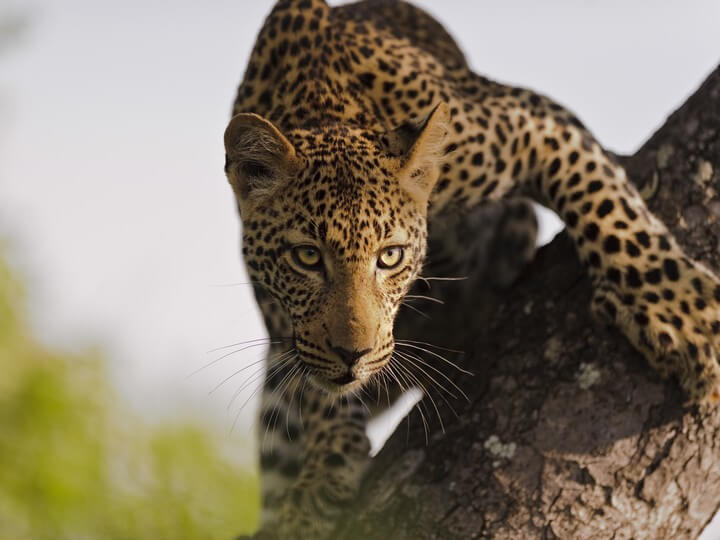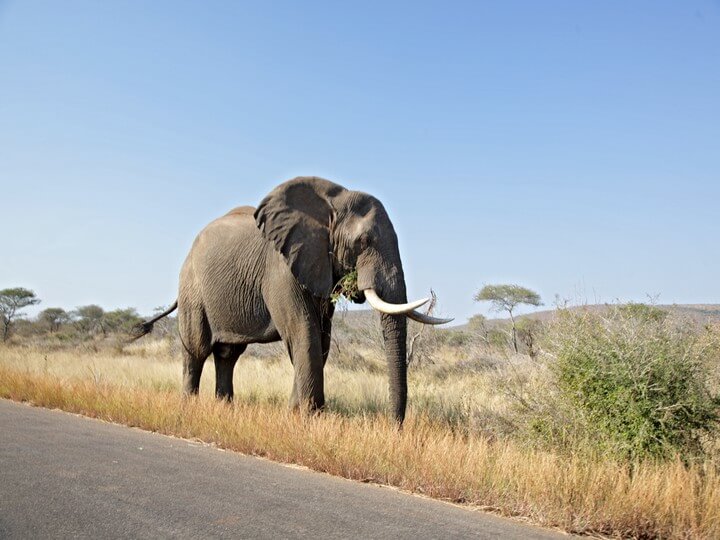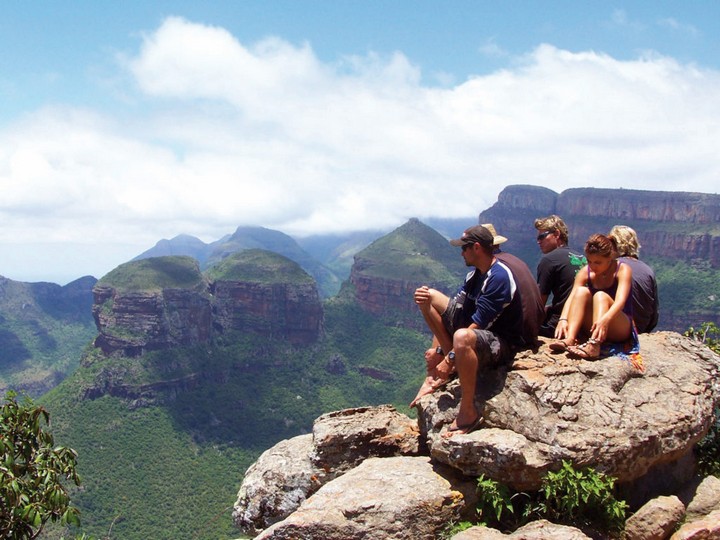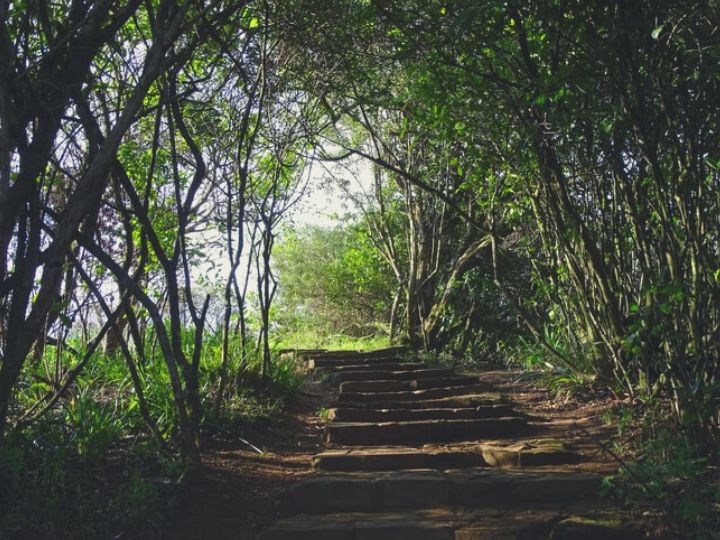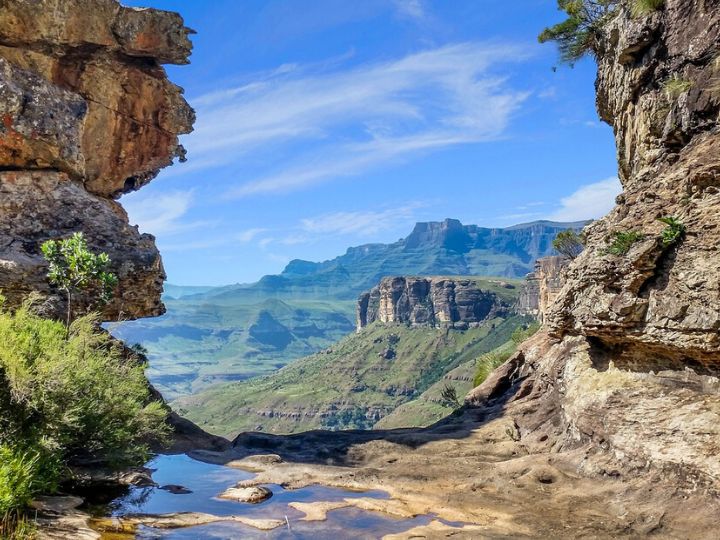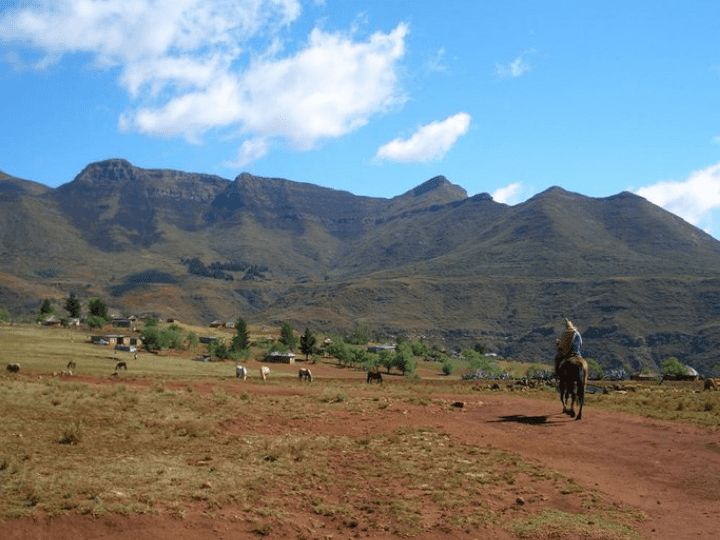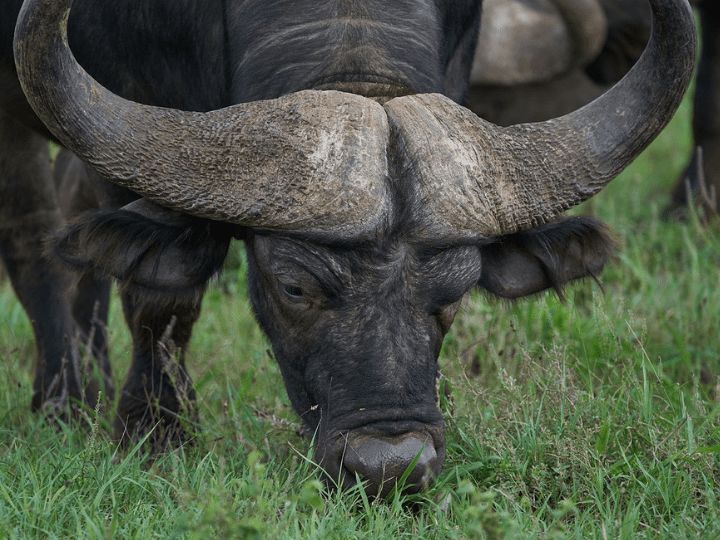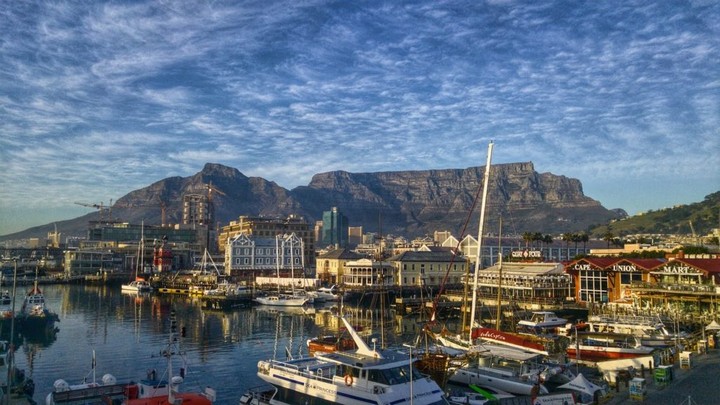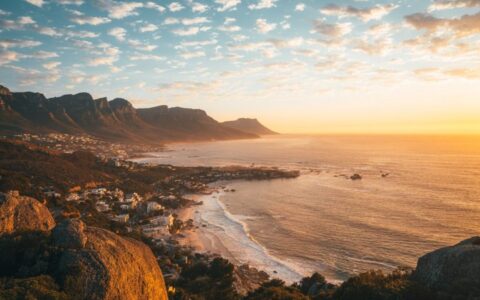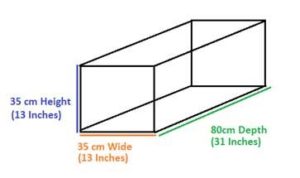| Tour start → end dates | Price | Enquire |
|---|---|---|
| 22 May 2024 → 09 Jun 2024 |
From R68200 |
Check Availability |
| 12 Jun 2024 → 30 Jun 2024 |
From 20% off! |
Check Availability |
| 24 Jul 2024 → 11 Aug 2024 |
From R68200 |
Check Availability |
| 14 Aug 2024 → 01 Sep 2024 |
From R68200 |
Check Availability |
| 25 Sep 2024 → 13 Oct 2024 |
From R68200 |
Check Availability |
| 16 Oct 2024 → 03 Nov 2024 |
From R68200 |
Check Availability |
| 06 Nov 2024 → 24 Nov 2024 |
From R68200 |
Check Availability |
| 27 Nov 2024 → 15 Dec 2024 |
From R68200 |
Check Availability |
| 08 Jan 2025 → 26 Jan 2025 |
From R76384 |
Check Availability |
| 29 Jan 2025 → 16 Feb 2025 |
From R76384 |
Check Availability |
| 19 Feb 2025 → 09 Mar 2025 |
From R76384 |
Check Availability |
| 12 Mar 2025 → 30 Mar 2025 |
From R76384 |
Check Availability |
| 02 Apr 2025 → 20 Apr 2025 |
From R76384 |
Check Availability |
| 23 Apr 2025 → 11 May 2025 |
From R76384 |
Check Availability |
| 14 May 2025 → 01 Jun 2025 |
From R76384 |
Check Availability |
| 04 Jun 2025 → 22 Jun 2025 |
From R76384 |
Check Availability |
| 25 Jun 2025 → 13 Jul 2025 |
From R76384 |
Check Availability |
| 16 Jul 2025 → 03 Aug 2025 |
From R76384 |
Check Availability |
| 06 Aug 2025 → 24 Aug 2025 |
From R76384 |
Check Availability |
| 27 Aug 2025 → 14 Sep 2025 |
From R76384 |
Check Availability |
| 17 Sep 2025 → 05 Oct 2025 |
From R76384 |
Check Availability |
| 08 Oct 2025 → 26 Oct 2025 |
From R76384 |
Check Availability |
| 29 Oct 2025 → 16 Nov 2025 |
From R76384 |
Check Availability |
| 19 Nov 2025 → 07 Dec 2025 |
From R76384 |
Check Availability |
| 10 Dec 2025 → 28 Dec 2025 |
From R76384 |
Check Availability |
| 31 Dec 2025 → 18 Jan 2026 |
From R76384 |
Check Availability |
| 19 Nov 2025 → 07 Dec 2025 |
From R76384 |
Check Availability |
| 10 Dec 2025 → 28 Dec 2025 |
From R76384 |
Check Availability |
| 31 Dec 2025 → 18 Jan 2026 |
From R76384 |
Check Availability |
South Africa Tour (Small Group with Aircon)
Tour Details
| Tour Style | Comfort Small Group |
|---|---|
| Length | 19 days |
| Countries Visited | South Africa, Lesotho,Eswatini (Formerly Swaziland) |
| Starts | Johannesburg |
| Ends | Cape Town |
| Group Size | Max 12 |
| Age Range | 12 – 65 Years and older |
| Tour SKU | SGA0412 |
What You'll Experience
- Kruger National Park
- God's Window Viewpoint
- Bourkes Luck Potholes
- Mlilwane Wildlife Sanctuary
- St. Lucia
- Hluhluwe/Umfolozi game reserve
- Drakensberg
- Lesotho
- Graaff Reinet
- Addo Elephant National Park
- Garden Route
- Tsitsikamma National Park
- Oudtshoorn
- Hermanus
- Cape Town
Why You'll Love this Tour
A 12 person Premium accommodated safari through South Africa - hiking, cultural visits and wonderful game viewing in the Rainbow Nation. Visit the Kruger National Park, Swaziland, Zululand, Drakensberg, Garden Route and Cape Town.
Tour Price
FROM
R54,560
+ Single Supplement 7150
There's a special on for this tour!
- Departing: 12/06/2024 - 20% discount - Tour price: 54,560
You might also be interested in:
Tour Reviews
Review by Ayda A:
Hi, We came back home safely, after 30 hours of traveling (Livingstone-Joburg-Dubai-İstanbul). But it was marvellous, amazing, and just like a dream. Even going to Zambia, actually. At the end I’m happy that we go to the Zambian side. Everything happened just like you said.
We find a taxi very easily after crossing to Zambia and pay 40USD to the driver for Jollyboys. We liked Livingstone. We did the whole day rafting, and then the next day we took the “under spray” tour and walked over the rocks under the falls. It was amazing. And for the sunset we stayed at the “royal Livingstone” hotel.
The view was so romantic and fantastic. On your left you can see the sprays coming up from the falls, in front the Zambezi river with hippos, and an amazing orange sunset. Also while walking in the national park we were guided by a local and make a chain in order to walk on the edge of the falls. Those men know what they are doing. They even took our photos by showing us the best spots. It was really fun. Even though, now, I can’t believe that we all did it. I really want to thank you for your help with everything. We’re so happy for being able to meet.
Dates Tour Length: 19 days
Included
- Meals - 18 Breakfasts, 18 Dinners
- Accommodation
- Registered guides
- Filtered Water
- Transport per itinerary
- Kruger Sundowner Game Drive, Kruger National Park 4×4 game drive, Game Drive in Kruger National Park (in the overland truck)
- Panorama Route – Bourke’s Luck Potholes, Blyde River Canyon, God’s Window
- Nature Walk with guide
- Game drive in Hluhluwe-Imfolozi National Park, St. Lucia boat cruise
- Visit to the Mandela Capture Site, visit Howick Falls, Hike with your guide in Ukhahlamba-Drakensberg Park
- Morning waterfall hike with your guide
- Valley of Desolation sundowner tour
- Half day game drive in Addo National Park (in the truck)
- Stop in the surfing town of Jeffreys Bay
- Tsitsikamma National Park entrance, Waterfall Hike
- Morning Visit to Natures Valley, Cango Caves Basic Tour
- Stop at Ronnie’s Sex Shop, Meerkat Experience
- Hermanus, Southernmost point, Cape Agulhas, Stony Point Penguin Colony
Excluded
- International Airfares
- Travel insurance (Get Adventure Travel Insurance)
- Personal spending money
- Visa costs
- Border taxes
- Passports
- Vaccinations
- Personal taxes (including departure and border taxes)
- All optional activities
- Unscheduled or optional national / game parks and other activities
- Gratuities
- Restaurant meals (other than those listed)
- All drinks - Soft Drinks, Bottled Water
- Alcohol
- Snacks
- Souvenirs
- Tips
- Laundry
- Other items of a personal nature
Activities
Some of the activities you can take part in on this tour.
Included in the Tour Price
- Kruger National Park Sundowner game drive, 4×4 game drive, Game Drive in Kruger National Park (in the overland truck)
- Panorama Route – Bourke’s Luck Potholes, Blyde River Canyon, God’s Window
- Nature Walk with guide
- Game drive in Hluhluwe-Imfolozi National Park, St. Lucia boat cruise
- Visit to the Mandela Capture Site, visit Howick Falls, Hike with your guide in Ukhahlamba-Drakensberg Park
- Morning waterfall hike with your guide
- Valley of Desolation sundowner tour
- Half day game drive in Addo National Park (in the truck)
- Stop in the surfing town of Jeffreys Bay
- Tsitsikamma National Park entrance, Waterfall Hike
- Morning Visit to Natures Valley, Cango Caves Basic Tour
- Stop at Ronnie’s Sex Shop, Meerkat Experience
- Hermanus, Southernmost point, Cape Agulhas, Stony Point Penguin Colony
Other Activities
Optional activities available on this tour at your own expense:
- Morning Bush Walk (Subject to Availability)
- Mlilwane Game Drives, Mountain Biking and Hiking
- Tsitsikamma National Park Woodcutters Journey tour, Treetop Canopy Tours, Bungee Jumping,
Itinerary
Day 1
Greater Kruger National Park, South Africa
We depart from Johannesburg early today and journey through the Mpumalanga province to the magnificent Kruger National Park. You enjoy a sunset game drive in the park this afternoon. Once we’ve settled in, we will be briefed on what lies ahead on your journey.
Accommodation: Two Per permanent Tent: Nkambeni Reserve
Facilities: En-suites facilities Please visit the website of the accommodation provider for a full list of the facilities offered.
Route: Johannesburg to Nkambeni Reserve
Meals: Dinner
Included Activity: Sundowner Game Drive
Day 2 - 3
Kruger National Park, South Africa
We travel up to the world famous Kruger National Park and begin with a game drive in our truck. We will spend the day driving through the national park in our truck, which gives us an elevated view to spot wildlife. Most of the day will be spent driving through the park. We explore the Kruger National Park in an open 4×4 safari vehicle.
The following morning starts earlier for those wanting to do an optional morning walk while the rest of the day is spent travelling through the incredible Panorama Route, visiting the highlights of The Three Rondavels, God’s Window and Bourke’s Luck Potholes before returning back to the camp in the afternoon.
Set up in 1898 in order to protect the wildlife of the South African Lowveld, the Kruger National Park (of almost 2 million hectares) is unmatched in the variety of animal species it contains and is a world leader in advanced environmental techniques and policies. The Park is home to approximately 145 species of mammal, more than 500 bird species (some of which are strictly indigenous to South Africa) and approximately 336 different tree species.
In 1927, when the first tourists visited the Park, they carried weapons and set up their own camps in areas surrounded by thorn bushes in order to guard themselves from predators. Throughout World War II, the Park was closed to the public and was then re-opened under new management in 1946. Currently, the Kruger National Park is one of the most popular tourist destinations in the entire world, complete with the facilities one could expect from any top holiday destination. However, it has still managed to maintain an untouched environment that provides you with a truly ‘African’ experience.
Accommodation: Two per Permanent Tent: Nkambeni Reserve
Facilities: En-suites facilities Please visit the website of the accommodation provider for a full list of the facilities offered.
Route: Kruger National Park
Meals: Breakfast x2, Dinner x2
Included Highlight: Kruger National Park 4×4 game drive, Panorama Route – Bourke’s Luck Potholes, Blyde River Canyon, God’s Window
Optional Activity: Morning Bush Walk (Subject to Availability)
Day 4
Kruger – Eswatini, South Africa
We begin the day with coffee and traditional rusks before leaving the Kruger National Park and journey to Eswatini (Formerly known as the Kingdom of Swaziland). We have an excellent platform for viewing as we make our way south to Eswatini which is a beautiful landlocked country bordered by Mozambique and South Africa. Our accommodation for the evening is spent in the Ezulwini Valley.
The smallest country of the southern hemisphere, Eswatini (formerly known as Swaziland) is one of three monarchies remaining in Africa. The Kingdom was declared independent from the Commonwealth in 1968 and is ruled by a King who is appointed in accordance with the Swazi traditions. If the King is absent or incapable of performing his duties for whatsoever reason, the Queen Mother acts on his behalf. This minute country made international headlines when it was ruled by two queens, one after the other. After the demise of King Sobhuza II, the substitute Queen Dzeliwe Shongwe reigned between 1982 and 1983, and just a few months following, Ntombi Twala became the country’s second female Head of State since the country’s independence.
Though Swaziland is surrounded on all sides by South Africa, it is bordered for roughly 100 kilometres by Mozambique in the east. It’s natural resources are tremendously well-managed, and in spite of the size of the country, it contains some of the finest game reserves and national parks within Southern Africa. Elephants, lions and rhinos were wiped out due to hunting at one point, but have since been restored to the region. Swaziland is also quite famous for its abundant bird life.
Mlilwane was Swaziland’s very first wildlife sanctuary, established in the 1960’s by a local farmer, Ted Reilly, who has contributed to the conservation of Swaziland’s natural heritage for many years. The Mlilwane Wildlife Sanctuary is a stunning, isolated haven situated in Swaziland’s ‘Valley of Heaven’, the Ezulwini Valley located between Mbabane and Manzini. The sanctuary spreads over 4,560 hectares and consists of a southern and northern section. The southern region consists mostly of sweeping grasslands with middleveld flora that stretch up onto the incredible Nyonyane Mountain. Nyonyane has much historical significance as it is where the ancient San communities once resided and it is also where the Swazi Royal family are buried. Behind these mountains, the remarkable Mantenga waterfall and gorgeous Usushwana Valley create a divide before extending up to the northern section, which includes one of the highest surrounding points at Luphohlo. From the western frontier, the enormous Usutu Forest boasts a vivid setting that stretches into the far-off hills. Tourist activities mostly take place in the southern section, with guided trails leading to the unspoiled mountains of the north. Meaning ‘little fire’, Milwane’s name originated from the countless fires initiated by strikes of lightning on the Mlilwane Hill’s stonework.
Accommodation: Two per Room Mlilwane Wildlife Sanctuary or Hlane Royal National Park
Facilities: En-suites facilities Please visit the website of the accommodation provider for a full list of the facilities offered.
Route: Kruger to Mlilwane
Meals: Breakfast, Dinner
Included Highlight: Game Drive in Kruger National Park (in the overland truck)
Border Post: South Africa: Jeppes Reef, Tel: + 27(0)13 781 0382, Open: 07h00-20h00 Eswatini: Matsamo, Tel: +268 323 2137, Open: 07h00-20h00
Day 5
Eswatini- Mlilwane Wildlife Sanctuary, South Africa
You will have enough time to explore as there are no real dangerous game in this area. In the morning we embark on a nature walk with your guide through the “Nature Trail” exploring the region on foot, enabling you to fully admire your beautiful surrounds as well as the gorgeous animals.
Accommodation: Two per Room Mlilwane Wildlife Sanctuary or Hlane Royal National Park
Facilities: En-suite Bathroom Please visit the website of the accommodation provider for a full list of the facilities offered
Meals: Breakfast, Dinner
Included Highlight: Nature Walk with guide
Optional Activity: Game Drives, Mountain Biking and Hiking
Day 6
St Lucia, South Africa
We say our goodbyes to Eswatini and travel back into South Africa. Making our way south, we reach Zululand, most commonly known for the mighty King Shaka.
Accommodation: Two Per Room Forest Lodge or Shonalanga
Facilities: En-suite facilities Please visit the website of the accommodation provider for a full list of the facilities offered.
Route: Mlilwane to St. Lucia
Meals: Breakfast, Dinner
Border Post: South Africa: Golela Border Post, Tel: +27(0)34 435 1070 Open: 07h00-22h00, Swaziland: Lavumisa Town Board, Tel: +268 20 790 93, Open: 07h00-22h00
Day 7
Hluhluwe – Umfolozi Game Reserve/ iSimangaliso Wetland Park , South Africa
We begin the day early, embarking on a game drive in the Hluhluwe-Imfolozi Game Reserve. The park boasts the biggest white rhino population in the world. Returning to the lodge in the early evening, we freshen up and board a boat to enjoy a delightful sunset cruise on the St Lucia Estuary.
Set up in 1895, the Hluhluwe-Imfolozi Game Reserve remains the oldest game park in all of Africa. The Park spreads over approximately 96,000 hectares and boasts a wide variety of wildlife and vegetation. It is specifically well-known for its conservation of masses of endangered black and white rhino. The remainder of the Big Five can also be spotted here: buffalo, elephant, lion and leopard, as well as plenty of other species including Blue Wildebeest, zebra, giraffe, waterbuck, nyala, kudu, bushbuck, warthog, cheetah, hyena, jackal and countless impala. Over 300 bird species have been identified in this region, making it one of the best bird-watching destinations in all of South Africa.
Accommodation: Two per room Forest Lodge or Shonalanga
Facilities: En-suite facilities Please visit the website of the accommodation provider for a full list of the facilities offered
Meals: Breakfast, Dinner
Included Highlight: Game drive in Hluhluwe-Imfolozi National Park, St. Lucia boat cruise
Day 8 - 9
Kwa Zulu Natal Coast – Ukhahlamba Drakensberg Park, South Africa
Located in Kwazulu-Natal, the Ukhuhlamba Drakensberg Park is a UNESCO World Heritage Site. It does not matter if you call these towering mountains by their Zulu name uKhahlamba, meaning ‘barrier of spears’, or their Afrikaans name Drakensberge, meaning ‘dragon mountains’, they will be our backdrop for the next two nights. While traveling, we will make a brief stop in Durban to stretch our legs before continuing to the Howick Falls and visiting the nearby site where Nelson Mandela was captured.
The following morning, we set out for a long hike. We encourage all participants to make the most of their time in the mountains, but we may offer separate activities for different levels of activity. Having a variety of trails available to choose from, we are able to meet everybody’s needs. The most important goal is that everyone is able to enjoy this mountain paradise at their own pace.
Accommodation: Two per room Monks Cowl
Facilities: En-suite facilities Please visit the website of the accommodation provider for a full list of the facilities offered.
Route: St. Lucia to Drakensberg
Meals: Breakfast x2, Dinner x2
Included Highlights: Visit to the Mandela Capture Site, visit Howick Falls, Hike with your guide in Ukhahlamba-Drakensberg Park
Day 10 - 11
Lesotho, South Africa
Before entering Lesotho in the afternoon, our route winds its way through the magnificent hills and mountains before crossing the capital city of Maseru as we climb to the base high in the mountains.
This morning, we explore the surrounding area on foot as the cool mountain air surrounds us. The trail, which will take us a couple of hours, offers a unique and adventurous landscape to explore.
The Kingdom of Lesotho is a landlocked country situated in the middle of South Africa and is one of the few African countries with natural boundaries formed due to tribal demands, rather than those forced by colonial ruling. Like Swaziland, Lesotho is one of the three remaining monarchies in Africa, but in contrast to Swaziland, Lesotho’s King serves a mostly ceremonial function whilst the Prime Minister retains executive authority. This small country has very little natural resources and due to overpopulation, the agricultural potential has reduced. However, what the country does have is a big heart comprised of awe-inspiring natural splendour and plenty of hospitable, friendly people. The towering Maluti Mountains spread over majority of Lesotho. These mountains are a rough and untamed range that form their very own climate which inevitably leads to sudden falls in temperature as well as mighty thunderstorms. The earliest recorded occupants of Lesotho were the Khoisan hunter-gatherers. Proof of their inhabitance dates back to at least 30,000 years ago, with cave paintings along with other San artifacts discovered in various dispersed sites all over Southern Africa, plenty of which were found in Lesotho. The Khoisan’s artworks have given us a glimpse into their lifestyle as well as their deep spiritual bond with the earth and animals. However, the San (referred to as Bushmen by colonial settlers and as Baroa by the Basotho tribes of Bantu origin) were mistreated from the instant they were discovered by outsiders, and have long ago withdrawn to the sands of the Kalahari, their last remaining sanctuary.
Accommodation: Two per Room Semonkong Lodge
Facilities: En-suite facilities Please visit the website of the accommodation provider for a full list of the facilities offered.
Route: Drakensberg to Semonkong
Meals: Breakfast x2, Dinner x2
Included Highlight: Morning waterfall hike with your guide
Day 12
Graaff Reinet, South Africa
Making our way back to South Africa, we journey across the mountainous regions to the Great Karoo. This area is the heartland of rural Southern Africa. We spend our evening in the historical town of Graaff-Reinet, known to be the fourth oldest town in the country. Crossing the Orange River today we journey through the countryside making our way to the Karoo. You have the opportunity to enjoy a sundowner excursion to the Valley of Desolation this evening.
Accommodation: Two Per Room Drostdy Hotel
Facilities: En-suites facilities Please visit the website of the accommodation provider for a full list of the facilities offered
Route: Semonkong to Graaff Reinet
Meals: Breakfast, Dinner
Included Highlight: Valley of Desolation sundowner tour (Kindly note that during the winter months, this activity will become a Sunrise excursion to the valley of Desolation the following morning.)
Border Post: Lesotho: Vanrooyenshek, Tel: +27 51 583 1525, Open: 06h00-22h00. South Africa: Vanrooyenshek, Tel: +27 51 583 1516, Open: 06h00-22h00
Day 13 - 14
Gqeberha (Gateway to Addo Elephant National Park)- Greater Addo Elephant National Park area, South Africa
Travelling towards the coast again, we pass through the plains of the Karoo and the breathtaking wildlife of the Addo National Elephant Park and spend the afternoon game driving through the park. This exclusive Eastern Cape Nature Reserve is home to one of the densest populations of African elephants in the world. This park is just as much a marine park as it is a land park, giving you the opportunity to spot the ‘Big Seven’ – elephant, rhino, lion, buffalo, leopard, southern right whale and great white shark. Gqeberha (formerly Port Elizabeth) is home to our overnight accommodation.
The next morning we leave to visit Gqeberha (previously known as Port Elizabeth) before making our way back to camp for lunch and the rest of the day is spent embarking on another game drive through the magnificent national park.
Accommodation: Two Per Room Singa Lodge
Facilities: En -suites facilities Please visit the website of the accommodation provider for a full list of the facilities offered
Route: Graaff Reinet to Gqeberha
Meals: Breakfast x2, Dinner x2
Included Highlight: Half day game drive in Addo National Park (in the truck)
Day 15 - 16
Tsitsikamma National Park, South Africa
We begin the day early in the morning and making our way west to the Tsitsikamma National Park where we spend the following two nights here. On our way, we stop at the popular surfers town of Jeffreys Bay, this town is home to a small Surfing Museum. The following morning we explore the town on foot, hiking along the Waterfall Trail. For those not wanting to partake in the hike there are a number of other optional activities to join in the afternoon. After the hike you can enjoy the afternoon on the Woodcutters Journey experiencing the history of the area and its fauna and flora.
Tsitsikamma National Park is situated between the ocean and the Tsitsikamma Mountains, located along the Garden Route – one of the most striking coastlines of the world. The Park spreads over 80 kilometres along the coast between Nature’s Valley and Storm’s River mouth, and includes a variety of different ecosystems (indigenous forests, commercial plantations, Fynbos and inter-tidal areas). It also boasts spectacular scenery and walks. It was the very first Marine National Park to be declared in Africa and is currently the third most regularly visited of all twenty of South Africa’s national parks. The forest contains over 30 species of native trees, several of which tower above the forest canopy – the highest being approximately 36 metres tall, whilst others date back to more than 1,000 years ago.
Accommodation: Two Per Room Tsitsikamma Village Inn or Storms River Lodge
Facilities: En-suites facilities Please visit the website of the accommodation provider for a full list of the facilities offered.
Route: Gqeberha area to Tsitsikamma
Meals: Breakfast x2, Dinner x2
Included Highlights: Stop in the surfing town of Jeffreys Bay, Tsitsikamma National Park entrance, Waterfall Hike
Optional Activities: Woodcutters Journey tour, Treetop Canopy Tours, Bungee Jumping,
Day 17
Oudtshoorn, South Africa
We journey through the spectacular Outeniqua Mountains toward Oudtshoorn, and we travel to the Cango Caves where we enjoy a walk with a local guide teaching us all about the about the system of the caves which stretches out for more than 4 kilometres.
Accommodation: Two per Room Kleinplaas Holiday Resort
Facilities: En-suites facilities Please visit the website of the accommodation provider for a full list of the facilities offered.
Route: Tsitsikamma to Oudtshoorn
Meals: Breakfast, Dinner
Included Highlight: Morning Visit to Natures Valley, Cango Caves Basic Tour
Day 18
Route 62 – Barrydale , South Africa
We stop at a meerkat farm this morning before bidding a fond farewell to the Klein Karoo! You can watch these curious animals as they wake up and catch the morning sun rays in the natural world, without being disturbed by humans. After visiting the farm stalls on Route 62, we follow a section of the scenic route. Today’s quirky highlight is Ronnie’s Sex Shop, not a sex shop at all, but a country pub!
Accommodation: Two per Room Karoo Art Hotel
Facilities: En-suites facilities Please visit the website of the accommodation provider for a full list of the facilities offered.
Route: Oudtshoorn to Barrydale
Meals: Breakfast, Dinner
Included Highlight : Stop at Ronnie’s Sex Shop, Meerkat Experience
Day 19
The Cape Whale Coast Route & Africa’s Southernmost Tip , South Africa
We reach Cape Agulhas, the southernmost point of the African continent, after passing through some quaint Overberg villages. Afterwards, we will drive along the pristine Cape Whale Coast. Approximately 150km to the east of the town of Rooiels, it has a variety of villages, farms, rivers, bays, coves, and valleys. During the months of July to November, we will have a chance to stroll along the Hermanus boardwalk in search of the southern right whales. After visiting Stony Point Nature Reserve, the largest breeding colony of African Penguins, we travel along the coast to Cape Town’s city center. Upon arrival in Cape Town’s city center, your tour comes to an end.
Accommodation: Own arrangements
Route: Barrydale to Cape Town (via Cape Agulhas & Hermanus)
Meals: Breakfast
Included Highlight: Hermanus, Southernmost point, Cape Agulhas, Stony Point Penguin Colony
Onward Travel Plans
Due to circumstances beyond our control while on tour (such as border crossings, traffic, breakdowns and delays, etc), the end time on the last day cannot be guaranteed. Therefore we strongly recommend you stay the night and fly out the next day. Please consult with your booking consultant.
Pre Departure
Important Touring Tips:
- The itinerary is a guide ONLY and is subject to change
- There is a mix of different nationalities, ages and cultures on every tour
- Space in the truck is limited – PLEASE DON’T BRING TOO MUCH LUGGAGE!
- The tours are high adventure tours, so don’t expect European Coach tours or lodge safaris
- The tours are often created in a circular route i.e. where one tour ends, another begins
- The rate is the same throughout the year
- Should you be travelling to Kenya. The Kenya government has instituted a Zero Tolerance on usage of All Plastic Bags. On the spot fines (400 USD) are being issued.
What are adventure tours?
These are adventure tours perfect for people who enjoy camping and the outdoors. You get to experience the “real Africa” by camping out at night, sitting around the campfire, taking in beautiful scenery, visiting local shops and getting to know the locals.v
What is a typical day?
A typical day on either your camping or accommodated Africa overland tour starts with an early morning wake-up call and a cup of tea or coffee followed by breakfast. Campers pack-up their campsite while comfort travellers check-out of their accommodation and hit the road.
We set off to our next destination travelling through a vast variety of landscapes, making our own new memories with new friends. Each day in Africa offers a new experience from an early morning sunrise hike, quad biking, sky dive or guided nature walk. The options are endless!
We have shorter travel days arriving at our campsite by midday or early afternoon, to enjoy lunch before joining our afternoon activity or simply enjoying a relaxed afternoon at your own pace.
On our longer travel days an early start ensures an earlier arrival at our campsite. We stop off at scenic spots to stretch our legs and take in the scenery, before lunch is enjoyed at a shady spot en-route. A mid- to-late afternoon arrival at our campsite allows us to set up camp, enjoy a beautiful sunset and end the day sitting around the campfire, under the stars.
Our best advice: expect the unexpected as this is Africa! We travel mainly on gravel roads and poorly kept tarmac roads – both setting the pace at which we travel. We do our best to arrive at our next destination, safety is our number one priority and while our overland vehicles are comfortable and spacious, they are not sports cars!
What type of vehicles do we use?
- A custom-built, comfortable, safe and self-sufficient Africa overland truck to withstand the rugged African terrain.
- Various vehicles are used on varying tours, with each offering comfortable seats with ample leg room.
- Each vehicle has large glass windows for uninterrupted views and perfect for game drives.
- Smaller 4×4 land cruiser type vehicles are used for game viewing in the Serengeti and Ngorongoro Crater, due to the roads being tougher and too narrow for the overland trucks.
- Each overland vehicle includes a passenger safe to safely keep money + passports + flight tickets + credit cards. The keys are kept with your Tour Leader who will advise of safety requirements in place concerning the safe.Who is suited to go on an adventure tour?
- Almost anyone can go on an adventure.
Some level of fitness is required due to accessing the vehicle and spending long days on bumpy roads (can take it out of you).EAST AFRICA TOURS require a more adventurous, fearless attitude and are suited to a younger traveller.
If you are planning to trek with the Mountain Gorillas or climbing Mount Killi you will need to have a higher fitness level.
WHAT TO EXPECT ON A CAMPING OR ACCOMMODATED TOUR
Camping Tours:
A camping safari is for travellers who want a hands-on experience of Mother Nature. The guide(s) will do most of the work, but you will be required to assist with various tasks such as preparing the food, washing up, cleaning out the truck and setting up the campsite and your tent. If you dream of a lifetime African adventure, embark on a journey with us sleeping under the stars while listening to the sounds of wildlife in the distance.
We offer camping safaris suited to travellers who may prefer to travel in a younger group (aged 18 to 39). Or, you can choose a mixed age group (18 to 60). A camping safari must not be underestimated and will require active participation which means good health and a fair degree of fitness. We have a tour to suit what you have in mind, so please do not hesitate to enquire with us.
During an African camping safari you will stay in large two-man dome canvas tents which are spacious enough for two adults and your luggage. Or, you can opt to have your own tent by including the single supplement (valid on select camping tours).
Your tents are put up and taken down easily – your Tour Leader will show you exactly how to do this and help out when you are unsure. All tents are well-ventilated by means of a tent-door and window, covered with mosquito net. They also include a fly-sheet for the rain.
Most camping safaris include a sleeping mat (please do check with us upon enquiry). You need to bring your own sleeping bag, pillow and towel. All meals are prepared at the truck and you will be required to assist with the preparation.
The African campsites are basic and comfortable and you will be able to upgrade your accommodation at most of the places, but this is subject to availability. Most have warm showers and flushing ablutions, while others may have natural ablutions. Some places visited are bush camps where there are no facilities.
Accommodated Tours:
Accommodated safaris are ideal for travellers who prefer to experience African wildlife and adventure with extra comforts. You are surrounded by vast landscapes and wildlife, curiously roaming at your door-step. It is comfort, without the price tag!
Our accommodated safaris make use of a combination of lodges, hostels, bungalows, chalets, permanent safari camps, hotels and traditional huts. Our properties are ideally located at each destination for an authentic experience with incredible views.
We book Twin rooms if you are travelling with a partner or friend and Single rooms for single travellers (including single supplement). Most of the time we stay in 1-3 star properties with en-suite bathrooms in Southern Africa. In Eastern Africa we offer a combination of en-suite and shared bathrooms. In the case of shared bathrooms, you will be sharing with friends on your tour. Please bring your own towels as these are not always provided.
Select accommodated safaris include a camp assistant to help out with the smaller aspects of your vacation.
The standard of the properties varies along the trip. The Southern Africa properties are much more established than the East Africa accommodation. They vary from basic (but comfortable) to lovely properties. Due to the remote nature of the trips, accommodation choices are limited.
Distances and Road Conditions:
Our tours cover long distances so you can see significant amounts of Africa this means that there will be long days spent on the road often with nothing to look at except vast open plains. You can spend between 350km and 650km a day in the truck so it is important to be prepared.
What will you eat on safari?
Our Africa overland vehicles are fully stocked with dry goods at the start of each tour. We buy fresh produce (fruit and vegetables) almost daily to ensure fresh, good quality and tasty meals. Over the summer months fresh produce is not always available due to the heat and humidity, especially in East Africa and Mozambique – so we may have to skip tomatoes from lunch or opt for rice instead of potatoes at dinner.
Each Africa overland camping and accommodated tour include meals as per the itinerary. Often, we may only include breakfast and lunch, allowing you to enjoy dinner at a local market or restaurant. Drinks such as tea, coffee and fruit juice is included with every meal, but exclude bottle water, beer, soft drinks, alcohol etc. – these can be bought en-route or at your campsite bar.
We do cater for most dietary requirements (allergies, vegetarian, lactose-intolerant). Other requirements (gluten-free) may be more challenging on remote routes (i.e. East Africa) where starch is a stable-food in Africa. Please do speak to us about your dietary requirements and we will advise according to your trip. You will be amazed by the variety of tasty meals prepared on an open-fire!
Almost all your meals are pre-prepared over an open campfire or on the gas stove in your overland vehicle. All cooking equipment such as pots, pans, cutlery and crockery is included for you. Excellent hygiene standards are maintained at all times preparing food and washing up of kitchen equipment. Your guides will provide you with a separate washing up basin to wash hands in warm soapy water before and after each meal.
Our camping tours are limited participation tours, whereby we ask you to help out with daily chores (putting up / taking down tents) and help out your guides at meal times (rinsing, chopping vegetables).
So what are the meals like on tour? We have included a few meal options as a guideline:
Breakfast:
Tea/coffee and juice + cereals + bread/toast + fruit. Take 2 fruits and keep one for a mid-morning snack. An occasional cooked breakfast (bacon, pancakes, eggs) is made when you have more time to allow for this (normally when you spend 2 nights at the same destination).
Lunch:
Juice + bread + cheese + cold meats + salads + fruit (make a sandwich for a mid-afternoon snack)
Juice + fresh rolls + green salad (or rice salad or pasta salad) + fruit.
Dinner:
Tea/coffee and juice + chicken curry + rice, grilled or roast chicken + salad + garlic roll, grilled chicken + vegetables + salad, fish braai + salad, steak + veggies, pasta, stir-fry + rice, casserole, braai (barbeque) + salads + jacket potatoes, soup + fresh rolls.
Drinks:
Tea, coffee and cordial drinks are supplied with meals but other cooldrinks and alcohol can be purchased along the way.
What about children on tour?
- Due to the nature of overland tours the minimum age limit is 18. Younger travellers (10 to 17) travelling with a parent(s) will be considered on a case-by-case basis depending on the tour, time of travel and tour availability. We do have select tours offering Family Departures, suited for children aged 10 to 17.
- Privately arranged charter tours’ age limits will be assessed based on the route and type of tour you choose.
- Please bear in mind that the Gorilla Trekking tours have a minimum age limit of 16 years.
Packing for your tour:
Packing sensibly is essential for your Africa Overland trip. One backpack and one daypack are needed and these can weigh no more than 25kg. A duffel bag is preferable as it will fit into the lockers on the truck, but you can also take a backpack with a compact, flexible, soft shell (without a hard frame). Please do not take suitcases. The airlines implement a 20kg per person limit on international flights for your luggage (your main bag) and a further 5 kg for carry-on luggage (your day bag). A good idea is to include a spare bag for curios that you may purchase, but don’t forget to include this in your weight for your trip home. A moneybelt is a useful item for keeping your money safe and hidden.
Take along comfortable, casual and semi-casual “wash & wear” clothes. Cotton is a good material for when it is hot, and fleece for when it gets cold. Pack clothes that don’t crease easily as the laundry facilities are limited. Find clothes that can be mixed and matched easily and are colour co-ordinated. A great item of clothing is zip-off pants. These double-up as shorts or trousers and are useful for when the weather changes. Reversible clothes are also very convenient and will help to reduce space in your bag.
Locker Sizes:
Clothes:
- 3-4 short sleeved shirts or T-shirts
- 2 pairs of trousers or 1 pair and 1 skirt – try not to pack jeans as they take a long time to dry
- ¾ pants
- Warm sweater or fleece top
- 1-2 pairs of shorts
- Tracksuit pants
- Light sweater or sweatshirt (can also be used as an additional pillow)
- Warm fleece top
- Underwear and socks
- Hat/peak cap/bandana
- Gloves
- Scarves
- Water/wind-proof jacket
- Boots or sturdy trainers
Beachwear:
- Swimsuit
- Sunglasses
- Beach towel and/or sarong
- Sandals or thongs (need to be waterproof if you want to go white-water rafting)
Toiletries:
- Personal toiletries
- No electric shavers
- Hand sanitiser/wipes (waterless sanitisers are convenient)
- Baby wipes/wet wipes
- Tissues
- Moisturiser
- Face wash
- Facecloth
Sleepwear:
- Pyjamas
- Travel pillow
- Spare pillowcase
- Sleeping Bag
- Fleece blanket
Medication/first aid kit:
- Prescription medication
- Anti-histamine cream or tablets
- Antiseptic cream
- Sunscreen (high factor) and lip balm
- Water purifying tablets
- Pain killers
- Eye drops
- Diarrhoea medication
- Moisturiser
- Dehydration salts
- Elastoplasts/band aids
- Insect repellent (Malaria is a big problem in Africa, so the more protection the better)
- Sterile dressings
Extras:
- Water bottle
- Book (you can swap with the rest of the group)
- Extra memory/film for your camera (remember to set at the highest resolution as you might want to enlarge the pictures)
- Head torch
- Pens
- Zip-lock bags (medium sized for cameras, snacks, trash etc.)
- Extra batteries
- Travel power strip ( a compact three-plug unit that includes two USB connections. With just one wall plug you can charge five gadgets) Buy on Amazon and will help to reduce space in your bag.
- Penknife
- Watch
- Biodegradable laundry detergent
- Vaccination certificates for some areas
- Cash
- Small scrubbing brush
- A padlock for your luggage locker in the truck
- The power plugs in SA have 3 round pins. East Africa has British power plugs.
Laundry:
- There will be washing facilities at most campsites which you can make use of.
- Please remember to bring some environmentally friendly washing
- We suggest you take along crease-free clothing as the facilities available for ironing are limited
Safety on Game Drives:
- When on safari be as quiet as possible at all times and don’t make any sudden movements, this will ensure you don’t disturb the animals and get the most out of your game drive.
- Do not jump off the truck at any time.
Accommodation (Pre Tour):
- It is highly recommended to arrive a day before your tour starts so that you do not miss out on the pre departure meetings as it covers important information you need to know for your trip.
- It is strongly advised that you arrive a day before the tour starts.
- We do advise letting us know as soon as possible in order for us to make the best hotel reservation for you.
- Post accommodation can be very easily arranged.
Personal Health:
- Ensure that the guides know of your medical conditions!!!
- Let them know how you are feeling.
- AIDS is an enormous problem in Africa so please be careful and practical, condoms are cheap and freely available.
- A First Aid Kit is available on the truck for any emergencies.
Vaccinations:
- Please ensure you seek medical advice from your travel doctor before visiting Africa.
- You should consult your travel doctor or travel clinic for the latest requirements for Hepatitis A (Havrax), Yellow Fever, Tetanus Booster Shot, Rabies
- If you are entering a Yellow Fever infected area, you will be required to have a vaccination which can be done at Travel Clinics.
- Obtain an international Certificate of Vaccination with a valid stamp.
- Yellow Fever – Valid for 10 years and mandatory for most African countries. It is compulsory to produce a yellow fever certificate when entering Kenya, Zanzibar and Malawi and for taking part in the Gorilla Trek. Failure to present this may result in entry being refused.
- We also recommend that you ask your doctor about: Typhoid, Tetanus, Hepatitis, Meningitis, Polio, Hepatitis A&B, Cholera
- Tents have mosquito nets in the vents and it is not generally necessary to bring a separate mosquito net unless you plan to sleep outside, under the stars(in which case you are recommended to bring one)
Malaria:
- Malaria is transmitted by mosquitoes and is more prevalent in areas where there are high concentrations.
- Malaria is a serious problem in Africa, but if you are cautious and use mosquito repellent and take your malaria tablets you will be safe.
Main points to keep in mind about malaria:
o Cover your skin with long shirts, pants and socks as most mosquito bites occur below the knee.
o Make sure your mosquito net is tightly closed and doesn’t have any holes in it.
o Use an effective prophylactic and speak to your doctor about options for anti-malarial tablets
o Always cover yourself with mosquito repellent, especially at sunset.
o Please know that malaria cannot be cured!
Water:
- Dehydration is a common ailment on tour.
- You should be drinking a minimum of 2 litres of water per day
- It is preferable to drinking bottled water to avoid diarrhoea, but your guide will advise you as to whether you can drink the water or not.
How others can reach you:
- The easiest option to keep in touch with your loved ones at home is to buy a SIM card of the respective country you are travelling in.
Photography:
- You are not permitted to take photographs at the border crossing, government buildings and military institutions.
- No photographs of the army, police are allowed.
- Some tribes do not allow their pictures to be taken so please ask your guides before photographing whether it is permissible or not.
- A fee may have to be paid for photographing the local people.
Crew and Guides
Tour Crew:
Your tour crew are people with a heart of gold and love living in Africa! With an in-depth knowledge of the local culture, history and wildlife, your crew are committed to ensuring a memorable African overland tour, 24/7.
- Most overland tours include two crew members (Driver and Tour Leader) working as a team managing tour finances, planning activities, preparing meals and ensure you safely experience Africa.
- Our larger group overland tours (maximum 26 to 30) include a third crew member (Camp Assistant or Cook or Translator – tour depending).
- A pre-departure meeting is held the day before your tour, where tour crew will brief you on the nature of your tour and what to expect. At this point they would also collect any local payments needed for your tour.
- We have select shorter small group tours including one crew member, responsible for driving and tour management. It is perfect for an exclusive, personalised African experience.
The Guides:
- All overland guides and crew undergo extensive training courses, lectures and field instruction on an on-going basis. Specialised guides are contracted for special interest tours (including school and University group tours) or language tours (Spanish and German) or private overland tours (on request).
- Although overland guides are trained and qualified, remember they are still human. The nature of their work and duration of overland tours, places an enormous demand on them and can be taxing at times. Please treat them with respect and enjoy getting to know them. They are great people!
Climate and Weather Conditions:
- The weather in Africa can be unpredictable and extreme so be prepared for this.
- You can find out the type of weather to expect on your tour from your consultant.
- Always wear sunscreen from October to April.
- Temperatures can drop to below zero from June to September.
- It does rain in Africa!
Street Vendors:
- Like with any 3rd world country you will encounter informal vendors offering you better rates than the banks. We suggest you don’t work with them for security reasons.
- Please do not display your foreign currency in public.
Passport:
- A valid passport is required for all international travel.
- Having all the necessary documentation for your trip is your own responsibility therefore you need to find out by your travel agent what the essential documents for the trip are in order to avoid any complications on tour.
- Passports must be valid for at least 6 months after returning from your trip.
- In certain cases foreign passport holders require entry, re-entry or departure permits and/or visas to enter a country.
- Have enough pages for all visas, at least 2 pages free for every country visiting – the Border Security is strict with this rule
- A copy of your passport should be given to your guides for safety reasons.
- Must be valid for 6 months after the date of departure from Africa.
- Avoid using more than one passport to avoid visa payments when travelling
Visa:
- Please note that visas are the responsibility of the traveller and African Overland Tours will not be held responsible for the traveller being denied entry should they not be in the possession of the relevant visas.
- Ensure you have a valid onward/return ticket to leave the country when the tour ends, otherwise you need sufficient funds in your bank account.
- Visiting the Okavango Delta, you may need a double entry visa for Namibia and or Botswana
- Botswana Tourism Levy: As of 1 June 2017, Botswana has implemented a tourism levy of US$ 30 per person to be paid in US Dollars cash once you enter.
Insurance
Medical Insurance:
- Compulsory! No one will be allowed on a trip if you don’t have this. It is for your safety should anything happen while on tour (especially when in a remote location).
Travel Insurance:
- It is compulsory to have comprehensive adventure travel insurance, on all overland tours. We require your travel insurance details upon booking your vacation, to include on the passenger list.
- Most travel insurance policies do not include cover for adrenaline sports and adventure activities. These include white-water rafting, sky diving and bungee jumping. So double check your policy inclusions.
- WorldNomads Insurance offer adventure travel insurance and, most importantly, cancellation insurance. We strongly recommend your travel insurance includes cancellation and curtailment insurance. The majority of tour departures are guaranteed (confirmed to depart) but in the unlikely event of a tour departure being cancelled, you would be protected.
- In the case of credit card insurance, we recommend you check the fine print to ensure you have adequate cover as credit card companies offer a standard option. Sometimes, just for a simple problem, you may have to be airlifted to South Africa as many public hospitals in Africa are below western standards.
- If you choose to use your credit card insurance, you will need to call your bank to obtain your policy details. This is how:
• Phone your bank
• Give them your Bank Card Number
• They will ask you to verify your account
• Then you need to ask for the insurance company name
• Then you need to ask for the policy number
• Remember to keep the telephone number you dialled
Single Supplements:
A single supplement is an additional charge you will pay for your own room. Single supplements are optional on camping tours, but compulsory on accommodated tours if you are a single traveller. Single supplements do not cover Activity Packages.
Optional Activities:
Optional activities are not included in the tour price because not everybody wishes to do them. Sometimes the activities are not available due to time, season or weather conditions
What is a Local Payment?
- A number of adventure overland tours are made up of a Tour Price + Local Payment.
- The Tour Price is pre-paid to secure your tour seat and include operational costs associated with each tour, such as; guide salaries, fuel, vehicle servicing, maintenance, road tolls and taxes.
- The Local Payment is a portion of your overall tour cost paid on the morning of tour departure, in either US Dollars cash or ZA Rand cash (tour depending). It includes “on tour” expenses which cannot ordinarily be pre-paid such as: food, camping, national park entry, included activities.
Activity Package:
- A selection of tours are made up of a Tour Price + Optional Activity Package.
- The Tour Price is pre-paid to secure your tour seat and include operational costs associated with each tour, such as; food, camping (or accommodation), national park fees, guide salaries, fuel, vehicle servicing, maintenance, road tolls and taxes.
- The Optional Activity Package combine the popular activities available on the tour, giving you the option to pre-pay this package (and so carry less cash while travelling) or; you can pay it on the morning of departure to your Tour Guide in ZA Rand cash.
- Activity packages are optional 98% of the time and covers what we consider to be ‘essential activities’ on the tours.
- It is more convenient to pay these upon your arrival or on the first day of the tour.
- If you do not pre-book a particular activity it may not be available and you may be disappointed.
Money Matters:
- Your spending money, visas and optional activities needs to consist of a combination of Cash and Traveller Cheques in the currency quoted (tour specific). Credit cards are only accepted at some places (mostly larger cities) and throughout South Africa.
- Visas are not accepted in East Africa.
- In Southern and East Africa, additional credit card surcharges from 5% to 8% may be charged when using your card. It is best to use it only in case of emergency.
- US Dollars, GB Sterling, Euro and select international currencies are used within Africa, with US Dollar being the most popular. You will find food, taxi, accommodation and optional activity prices are all quoted in US Dollars.
- US Dollars cash notes must be issued POST 2005. No notes pre-dated are accepted due to fraudulent notes rife in East Africa. You can pre-order US Cash notes from your local bank or foreign exchange office prior to arriving in Africa.
- It is best to bring a combination of larger denominations (USD100 and USD50) to pay for your Local Payment and smaller denominations (USD50, UDS20, USD 10 and USD5) for spending money, visas and optional activities.
- ATMs are found throughout South Africa and other major towns and cities through Africa. However, you may not have access to an ATM for a few days, or they may be out of order. Please note that when drawing money from a local ATM, you will receive local currency. In Zimbabwe the ATM’s limit the amount of USD that can be withdrawn (it ranges from 50 USD – 200 USD a day).
- ZAR is mostly used in South Africa and Namibia. We recommend USD for Botswana, Mozambique, Livingstone and Victoria Falls area.
Credit Cards:
- Most of the major Southern and East African cities do have credit card facilities available however they may charge you a surcharge to use the facility.
- Visa and Mastercard are the two most widely used accepted credit cards in Africa, while diners or American Express may not always be accepted
Banking facilities:
- There are full banking facilities in the major towns based on weekly business hours. Here you can change money and withdraw cash from a credit card. Visa and Master Card are preferential, as other cards may not be widely accepted.
Tipping:
- It is recommended to tip for various activities on tour – we suggest a tip of 1-3 euro (or whichever local currency is acceptable) per client, per half day activity.
- Tipping your tour leader is also highly recommended as he / she works really hard to ensure you have the best experience on your tour. A tip of 2 – 5 Euros per client per day is a reasonable fair.
- The amounts quoted above are only guidelines for the clients.
Departure Tax:
- Various countries require you to pay an Airport Departure Tax (Zimbabwe is one) when departing on an international flight.
- Varies from US$10 – US$60 depending on the departure time
Security:
- The truck has a safe for passports, money, credit cards and flight tickets only!
- Keep your cameras, cell phones, iPad’s and other digital equipment close to you at all times (preferably in your day pack) as the operator will not be held responsible for anything that goes missing.
- Leave your valuables at home!
- Be vigilant and cautious at all times.
- Always walk in a group, especially at night.
- It is advisable to have travel insurance for your personal items.
Quality and Protection:
- We are proudly bonded SATSA members. Our membership number is 1712.
- We are also insured by SATIB.
- SATSA is the Southern Africa Tourism Services Association and offers protection to international travellers against the possible loss of deposits (or monies paid) to a SATSA member (tour operator, car rental company, accommodation provider etc.), in case of liquidation. It is underwritten by Lombard Insurance and Lloyds of London.
- SATSA is the driving force behind improving standards of tourism in South Africa, as offered by its various members (tour operators, car rental companies, accommodation provider etc.).
- “Should a SATSA member who is a South African tourism business operation, run into financial problems, the bonding scheme allows the client to claim back their deposit without having to prove in a court or to the liquidator whom or what was paid, but simply to produce the relevant documentation to SATSA.” – Michael Tatalias, CEO SATSA.
- Satsa Bonding Offers financial protection on all monies paid.
Quick Checklist
- Make sure your vaccination requirements have been done at least 4 weeks prior to your tour
- Remember to make sure your VISA is valid for you to go on tour
- Remember to reconfirm your flights. Airlines vary in their requirements but we suggest you reconfirm 48 – 72 hours before your departure homebound
- Remember to take your passport, vaccination certificate and flight tickets with you ( a photocopy of these is a good idea)
- Remember to take a copy of your insurance policy with you
- Remember to take your travel voucher to give to your crew at your pre-departure meeting
- Remember to take your Adventure Pass in US $ cash (unless pre-paid)
FROM
R54,560
